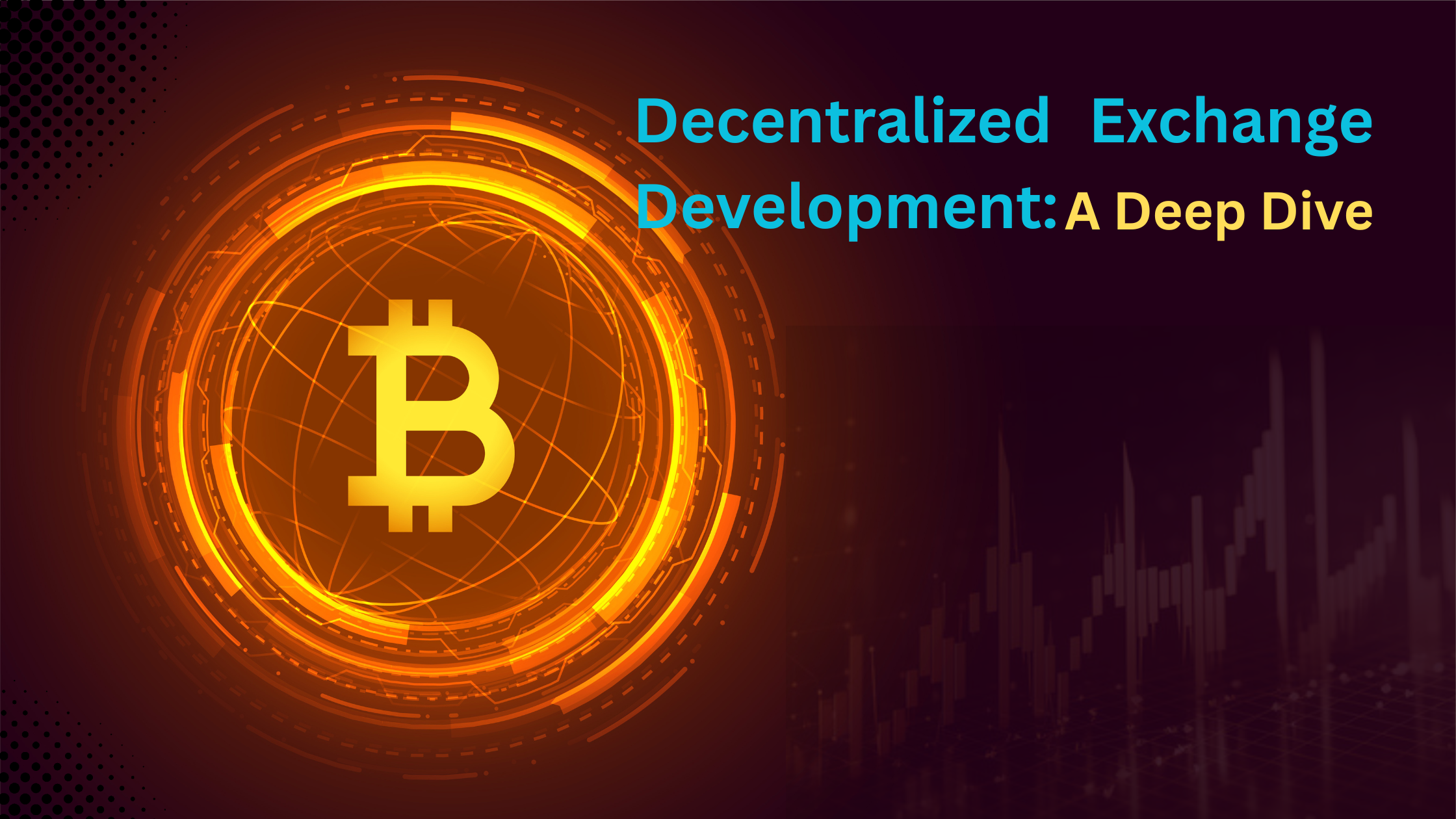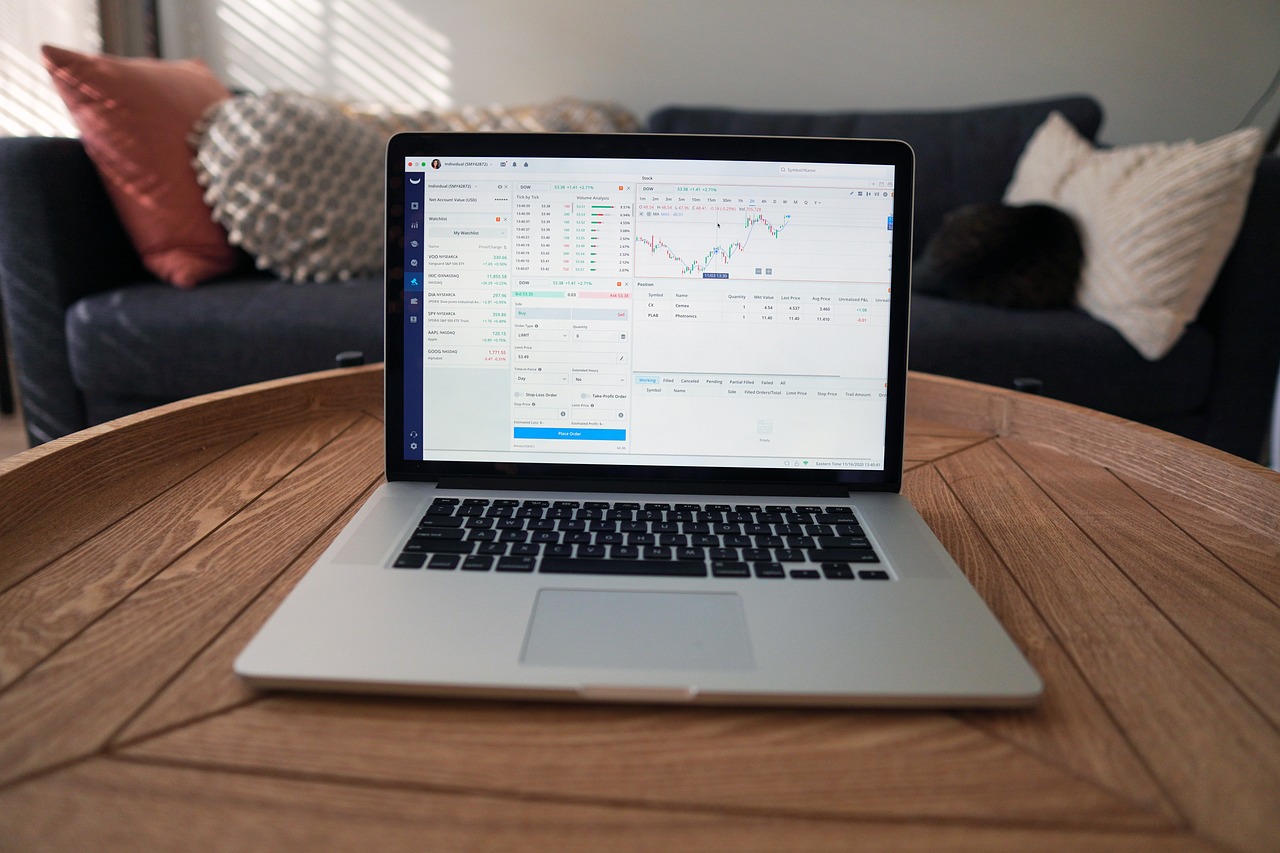Decentralized Exchange Development: A Deep Dive

Strong 8k brings an ultra-HD IPTV experience to your living room and your pocket.
Introduction
Decentralized exchanges (DEXs) are making new means of trading digital assets possible. As opposed to centralized exchanges (CEXs), DEXs run on blockchain networks, circumventing the requirement for intermediaries and providing users with direct ownership of their money. This deep dive delves into the key elements, development process, security aspects, and future prospects of DEXs.
What is Decentralized Exchange?
Decentralized Exchange is a peer to peer network that facilitates crypto trading without the third person between the central authority and users. In contrast to centralized exchanges such as Binance or Coinbase, decentralized exchanges enable users to be in control of their funds without a third party in the middle and directly interact with smart contracts on the blockchain. Being familiar with the basic and core features of decentralized exchange you can create your own decentralized exchange that gives a wonderful trading experience. it enhances the security and transparency of the transactions.
Building a DEX: Step by Step Overview
Decentralized exchange need to walk these steps while proceeding from creation to deployment.To have these are following steps:
Conceptualization and Planning: Plan the DEX's scope, target consumer segment, and value proposition such that it should stand out differently.
Blockchain Selection: Select a fitting blockchain network by scalability factor, security parameters, and pricing points.
Smart Contract Development: Author contracts of token exchange, managing liquidity, sharing fees.
Front-End Development: Create and develop an easy-to-use interface to facilitate improved interaction.
Liquidity Pool Integration: Integrate liquidity pools and management mechanisms for them.
Testing and Auditing: Thoroughly test the DEX and perform security audits to identify and resolve bugs.
Deployment and Launch: Deploy the DEX to the targeted blockchain network and launch it to the public and use public experience as feedback for future updates.
Maintenance and Updates: Regularly monitor and update the DEX to enhance performance and security.
Types of Decentralized Exchange
Automated Market Makers (AMMs):
AMMs use liquidity pools, which are token groups locked within smart contracts.
Rather than traditional order books, they employ mathematical equations to decide asset prices.
They deal from these liquidity pools, and prices vary with respect to the pool's tokens proportion.
Examples: Uniswap, PancakeSwap, Curve Finance.
Order Book DEXs:
DEXs model this conventional order book system like central exchanges have traditionally had.
buyers and sellers post orders and the exchange fills them.
These work on-chain, making processes transparent as well as having trading without a middleman.
DEX Aggregators:
DEX aggregators do not maintain their own liquidity. Instead, they aggregate liquidity from other DEXs.
They hunt across different DEXs for the best trade prices available.
This assists in reducing slippage and improving returns for the users.
ParaSwap is an example.
Core Components of Decentralized Exchange
Getting familiar with the basic and core elements of developing decentralized exchange:
Smart Contract
These autonomous contracts that enable trades, manage the liquidity pools, and process the user interactions safely and independently.
Blockchain network
The blockchain is used as the basis for recording and verifying transactions. Ethereum, Binance Smart Chain, Polygon, and others are commonly used.
Liquidity pools
These token pools make trading possible by offering liquidity. Automated Market Makers (AMM) base asset prices on these pools.
User Interface
The frontend Dapps allow users to easily interact with smart contracts and also connect to their wallet.
Oracles
Certain DEXs rely on oracles such as Chainlink to retrieve external price information for improved trade execution and security.
So many platforms have been utilized for decentralized exchange depending on their properties and advantages. Some of these DEX platforms are:
- Ethereum – Most widely used, supports Solidity
- Binance Smart Chain – Faster transactions and lower fees.
- Solana, Polygon, Avalanche – High-performance alternatives.
For the process of development, there are a few frameworks. Hardhat, Truffle, Foundry are utilized for testing and development. Solidity is the primary programming language for ethereum dex. A platform doesn't rely solely on coding but also relies on its interface design which is technically known as frontend. There are certain frontend tools that are utilized in decentralized exchange
- React.js – Widely used for developing user interfaces.
- Web3.js – To integrate frontend with blockchain.
- WalletConnect – Used for integrating with wallets.
Security Considerations
If we develop a decentralized platform, we would like to implement security measures within the platform. Security is of utmost importance in DEX development.
- Smart Contract Security: Formal verification, strict audits, and secure coding practices are a must.
- Mitigation of MEV: Develop measures to avoid Miner Extractable Value and front running.
- Liquidity Pool Security: Secure against exploits and maintain the integrity of liquidity pools.
- User Security: Educate users and raise awareness for securing their private keys and avoiding scams.
Benefits of DEX
Decentralized exchange is utilized in trading numerous uses and advantages are provided to users. Some advantages are as follows:
- Improved Security: Users hold control over their funds, minimizing the risk of centralized hacks.
- Improved Privacy: Transactions usually have various names, providing more privacy.
- Lower Costs: Removal of third party can result in cheaper trading fees.
- Increased Accessibility: DEXs are available to anyone with a Web3 wallet and internet access.
- Censorship Resistance: DEXs are less susceptible to censorship and regulatory overreach.
Future Of DEX
Layer-2 Scaling Solutions: Roll Ups and side chains will enhance scalability and lower transaction costs.
Cross-Chain Interoperability: Interconnecting diverse blockchain ecosystems will facilitate seamless asset transfers.
Advanced Trading Features: permanent futures, options, and other derivatives will increase trading possibilities.
NFT Integration: NFT integration into DEXs will create new platforms for trading and asset management.
Enhanced User Experience: Friendly interfaces and trading experiences will fuel mass adoption.
Decentralized Governance: DAOs will have a larger role in managing and evolving DEXs.
Conclusion
Decentralized Exchange Development defines their financial dimensions and enhances transparency. Understanding decentralized exchange core elements, development process, and security matters creates the best exchange platform with a more centralized and balanced financial future. Having the right tools, planning, and a solid development team, your own DEX launch could put you at the forefront of Web3 innovation. With the technology advancing, DEXs are likely to be instrumental in the widespread adoption of blockchain and cryptocurrencies
Note: IndiBlogHub features both user-submitted and editorial content. We do not verify third-party contributions. Read our Disclaimer and Privacy Policyfor details.







